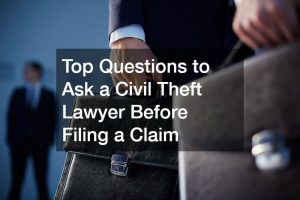Compliance is one significant risk all businesses face. If not adequately prepared for, or done so intentionally, tax penalties can result in outright tax evasion, which fully tarnishes a business owner’s reputation, and making them guilty of a felony.
Thus, all businesses need to consult a trustworthy tax compliance attorney before filing their tax returns. An expert’s reviews are incomparable and sure, as researching on your own can only do so much.
That said, let’s discuss the taxes businesses are subject to and the grounds for tax evasion.
Business Taxes
1. Income Tax
Income tax comes from a business’s taxable profit. Payment of this tax varies for each business structure, explained as follows:
- Sole Proprietorship
- The owner’s expenses and income are included in their personal income tax return (Form 1040). Their profits and losses are indicated in the Schedule C form, which is filed along with Form 1040. The resulting amount on the Schedule C form will then be transferred to their personal tax return. They’re also required to file a Schedule SE with Form 1040 to calculate their self-employment tax. Also, they must pay estimated taxes if they’re expecting to owe a minimum $1,000 on federal charges if their withholding taxes for the year is less than 90% of the tax they’ll owe on their current tax return, or 100% of their previous tax liability, whichever is lower.
- Partnership
- Partnerships must file a Form 1065, where their income and losses are reported. Each partner must also submit their share of the business’s profit and loss through the Schedule K form, which comes with the Form 1065.
- Corporation
- Corporations are subject to income tax at both state and federal levels, and the owners must pay a double tax on the business’s earnings. The dividends paid are taxed on each shareholder’s tax returns as well.
2. Payroll Tax
All business hiring employees are subject to a payroll tax, which is deducted in each employee’s paychecks. It is divided into three categories, namely federal income, Social Security, and Medicare. The government also takes a portion of federal unemployment programs.
3. Trust Fund Recovery
Trust fund recovery is a tax penalty businesses are charged with when they withheld or intentionally didn’t pay their taxes. The person responsible for noncompliance can personally be held liable for as high as 100% of the tax owed.
Grounds for Tax Evasion
Tax evasion is the use of illegal means to avoid paying taxes. Businesses or self-employed individuals usually do this by hiding or falsely reporting their actual income.
As per the Internal Revenue Code, tax evasion can result in a felony case. In turn, guilty corporations can be fined up to $500,000, while individuals can be charged as high as $250,000. Imprisonment for up to 5 years can also be a consequence, in addition to the fines.

The following practices are the grounds for tax evasion:
- Under-reporting of income, particularly cash income
- Hiding an income source
- Sending false information regarding business income or expenses
- Intentionally underpaying taxes
- Understating your taxes
- Overstating deductions
- Using two sets of books
- Adding false entries in books and records
- Stating that personal expenses are the business’s
- Claiming deductions without proof
- Hiding or transferring assets or income
- Failure to withhold payroll taxes
- Hiring a tax-evading third-party payroll service
- Failing to report cash payments to employees
- Filing false payroll tax returns
By being informed on tax laws and evasion, and being guided by a lawyer at the same time, the compliance of your business can be secured. Be sure to adhere to the laws at all times. Otherwise, you might face personal liability for balances in arrears and noncompliance with tax laws.






